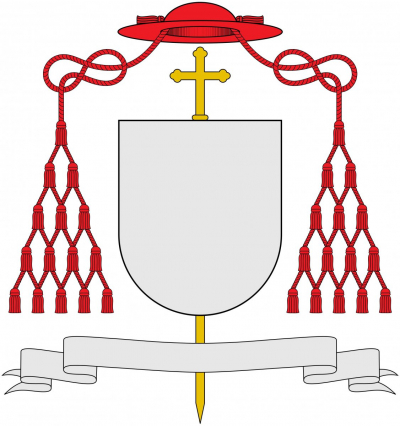Robert of Geneva, (French: Robert de Genve; 1342 16 September 1394) elected to the papacy as Clement VII (French: Clment VII) by the cardinals who opposed Pope Urban VI, was the first antipope residing in Avignon, France. His election led to the Western Schism.
The son of Amadeus III, Count of Geneva, Robert became Archbishop of Cambrai and was made a cardinal in 1371. As legate, during the War of the Eight Saints, he is said to have authorized the massacre of over 2,000 civilians at Cesena in 1377. He was elected pope the following year by the cardinals who opposed Urban VI and established himself at Avignon.
A cardinal (Latin: Sanctae Romanae Ecclesiae cardinalis, literally "cardinal of the Holy Roman Church") is a senior member of the clergy of the Catholic Church, immediately behind the pope in the order of precedence. Collectively, they constitute the College of Cardinals, and are appointed for life.
Their most solemn responsibility is to elect a new pope in a conclave, almost always from among themselves (with a few historical exceptions), when the Holy See is vacant. During the period between a pope's death or resignation and the election of his successor, the day-to-day governance of the Holy See is in the hands of the College of Cardinals. The right to participate in a conclave is limited to cardinals who have not reached the age of 80 years by the day the vacancy occurs. In addition, cardinals collectively participate in papal consistories (which generally take place annually), in which matters of importance to the Church are considered and new cardinals may be created. Cardinals of working age are also appointed to roles overseeing dicasteries of the Roman Curia, the central administration of the Catholic Church.
Cardinals are drawn from a variety of backgrounds, being appointed as cardinals in addition to their existing roles within the Church. Most cardinals are current or retired bishops or archbishops leading dioceses around the world – often the most prominent diocese in their country. Others are titular bishops who are current or former officials within the Roman Curia (generally the leaders of dicasteries and other bodies linked with the Curia). A very small number are priests recognised by the pope for their service to the Church; as canon law requires them to be generally consecrated as bishops before they are made cardinals, but some are granted a papal dispensation. There are no strict criteria for elevation to the College of Cardinals. Since 1917, a potential cardinal must already be at least a priest, but laymen have been cardinals in the past. The selection is entirely up to the pope and tradition is his only guide.

 English
English  español
español  français
français  português
português  русский
русский  العربية
العربية  简体中文
简体中文 
